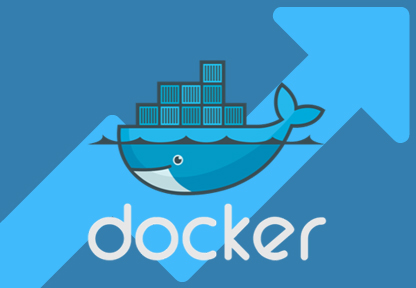Your team is excited about using Dockers, but they don’t quite know their way around the technology. Not to worry – we’ve got you covered. Use these resources to help your team to get underway. Bookmark this page even if you have a team that knows Docker containers inside out so you can give this resource to new hires that join your team.
The Top Docker Websites
In four parts, this free resource explains how to get started with Docker. You’ll find out how to create your first Docker image. The tutorial also includes Docker terminology and multi-container environments. You’ll find commands, screenshots, and examples to help you develop Docker skills. As the title suggests, this resource is aimed directly at beginners. Best of all, this is a free resource!
There’s nothing like going directly to the source; make sure you include the official Docker website in your training. From a productivity perspective, the most useful parts of the website are the knowledge base, resources, and documentation areas. You can also learn about contributing to Docker’s open source projects.
Video Resource: Want a visual example of how to apply Docker technology? Check out Docker’s YouTube Channel, which has a playlist dedicated to modernizing .NET apps.
What principles govern container formats? To find the answer, look at the Open Container Initiative. If somebody on your team wants to get into the technical aspects of containers and container theory, this is a useful resource. If container technology is critical to your business, you might want to consider signing up for a corporate sponsorship.
Tip: Experimenting with new Docker container open source projects is a great way to stretch your team. However, make sure your team never forgets about cybersecurity. Look into using Identity Everywhere to bring identity management to your organization.
The Top Docker Books
While websites are great for the latest information and releases, they do have a drawback: they’re not usually well structured to support learning. That’s why we recommend including books about containers in your knowledge.
- The Docker Book by James Turnbull
This digital book is an excellent entry-level introduction to using Docker. You’ll learn how to build services with Docker, how to install Docker, and discover the Docker API. You can read the book in PDF or on your Amazon reader. Note that this resource was updated for Docker 1.13. At $9.99, it’s hard to go wrong with this book, which is aimed at system administrators and developers.
- Docker in Practice, Second Edition by Ian Miell and Aidan Hobson Sayers
Do you like step-by-step technical guides? If so, then this is the book for you. You’ll find over 100 techniques outlined in this 400+ page book. It covers everything from Docker and DevOps to building images and container orchestration. Note that the second edition is due for release in September 2018. If you want immediate access, get Docker in Practice (First Edition).
- The DevOps Handbook: How to Create World-Class Agility, Reliability, and Security in Technology Organizations by Gene Kim, Patrick Debois, John Willis, and Jez Humble
To get the highest value out of Docker, you need to know DevOps. With case studies from Facebook, Google, Amazon, and Capital One, this handbook is an excellent resource for practical examples. For organizations struggling to get a DevOps culture underway, this is the book for you. We recommend managers read this book before their teams to guide their approach to DevOps.
Conferences to Build Your Docker Skills
While conferences are much more expensive than books, they offer unique value. You can see Docker container in the wild and find out cutting-edge use cases that haven’t been released to the public. If you’re recruiting developers, hitting the conference circuit is one of the best ways to scout for new talent.
The annual training and conference event organized by Docker.com is a must-attend event for Docker enthusiasts. At DockerCon, you can earn a Docker certification onsite. Past conferences have included specialized workshops covering Docker storage concepts and migrating a Java app to Docker. Videos from DockerCon 2018 are available on the website if you couldn’t make it up to San Francisco.
In contrast to DockerCon’s annual schedule, DevOps Days are held at various locations around the world including Chicago, Minneapolis, and Amsterdam. For example, the September 2018 event in Portland will cover continuous learning, disaster resilience, and testing. With tickets going for less than $200, this is an affordable option to learn more about DevOps.
Held in Hamburg in June 2018, Container Days is a multi-day event dedicated to container technology. Conference speakers covered microservices, Java and containers, and continuous delivery. For those with a desire for study, the event also included small workshops with less than 30 attendees. Visit the website periodically to see when future conference dates are announced.
For broad coverage over a range of container technologies, Container World is a good choice. You’ll find panel discussions on container orchestration. Additionally, the event covers DevOps, architecture issues, and security. Past speakers have come from a variety of companies including Domo, Expedia, WP Engine, and Netflix. If you’re interested in containers but want something broader than Docker technology, this is a good event to attend.
How Do You Choose Which Docker Resource to Invest In?
With so many options to consider, how do you choose? We recommend a sequential model. For developers and junior professionals, start by focusing on self-study resources such as books and websites. These are helpful to get your feet wet, ask questions, and acquire a foundation in Docker and container technology. Once your developers have built up some experience, consider sending some of your staff to conferences. If you need to make a business case, encourage your staff to apply to speak at an event about their container success.




